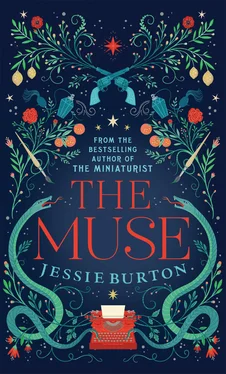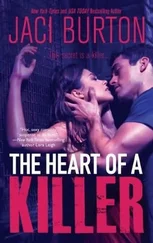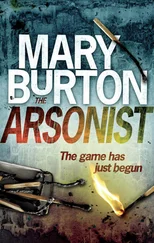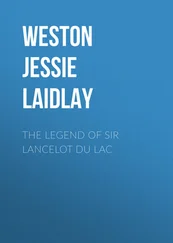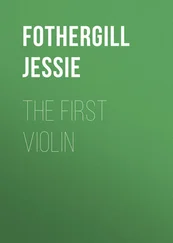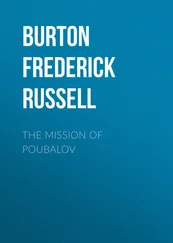Teresa stood at the doorway, her satchel across her chest. ‘Is there anything I can do?’
Olive lay back on the bed. ‘I want to look like Garbo,’ she said languorously, stretching herself out, running her fingers through her hair. ‘Tere, how good are you at making waves?’
*
The girls set up a chair in front of the oval mirror, which Teresa had found in a spare room and nailed to the wall. The glass was foxed and misty round the edges, but the centre was clear enough. They were using a series of illustrations from one of Sarah’s Vogues in an attempt to recreate Greta Garbo’s look. Teresa lit candles around the room as the light outside faded.
‘I’ve never been able to have finger waves anyway,’ Olive said. ‘My hair’s too thick. But we should be able to do these curls.’
They remained in companionable silence for a good five minutes, Olive enjoying Teresa’s calming administrations through her hair; a repetitive, smoothing motion that made her sleepy. ‘I suppose it’s good news about the election, but I keep thinking about that poor boy Isaac knew,’ she said finally.
Teresa kept her eyes down, working at the nape of Olive’s neck. ‘One day, left, next day, right. The government changes the street names more than I change my bed. And at the end of it, señorita, I never see the difference.’
‘Well, thank goodness there are men like your brother who do care.’
Teresa was silent.
‘Do you like your father, Tere?’ Olive said.
Teresa frowned at the back of Olive’s head. ‘I do not like the stories.’
Olive opened her eyes. ‘What stories?’
Teresa wrapped small portions of Olive’s sizeable mass of hair round and round her finger, before securing it tightly with the pins sequestered out of Sarah’s bedroom. ‘They say that once he cut a man’s thing off and nailed it to a door.’
Olive swivelled her head round, and the hair sprang from its curl, the pin skittering across the floorboards. ‘What? To a door ?’
‘He was his enemy.’
They looked at each other, then burst out laughing, high on the night to come and the violence they believed was safely avoided, because it had gone before their time, because neither of them had a thing , and because they were safe up here.
‘Teresa, that’s disgusting! Why would he do that?’
‘It’s just a rumour,’ Teresa said, picking up the pin.
‘But no man would drop his trousers to prove it.’
‘And yet Don Alfonso never denies it.’
‘Jesus, Teresa. And I thought I had problems with my father.’
Teresa looked up. ‘What problems?’
Olive sighed. ‘Oh, nothing really. I just. . I feel a bit invisible, that’s all. He never takes me seriously. I never know how to make him take me seriously. The only things he thinks about are his business and whether my mother has taken her pills. And she’s never really taken the time to understand me either. When I have children, I am never going to be like her. I wish I was free of my parents. I suppose I could be free of them, if I put my mind to it.’
‘If you had gone to the art school, you would be free.’
‘You can’t be sure. And painting here makes me feel freer.’ Olive looked serious. ‘Although I’m learning something else out here.’
‘What is that?’
‘That if you really want to see your work to completion, you have to desire it more than you’d believe. You have to fight it, fight yourself. It’s not easy.’
Teresa smiled, working through the mass of Olive’s hair with a level of attention that Olive wanted to bask in for ever. She had never had a friend like this, in her private room, combing her hair, listening to her, talking about silly nonsense and the uselessness of one’s parents; how the future was perfect, because they hadn’t lived it yet.
‘I always find that the time before a party is happiest,’ Olive said. ‘Nothing’s had the chance to go wrong.’ Teresa lifted her hands away from Olive’s head. ‘Why have you stopped?’ she asked, as Teresa walked over to her satchel.
Teresa removed a small, square package wrapped in tissue paper. She held it out, nervously. ‘For you,’ she said.
Olive took it. ‘For me ? My goodness. Shall I open it now?’
Teresa nodded, and Olive gasped when she saw the green flash through the paper, emerald strung on emerald, emerging like a stone snake, a necklace of such beauty and intensity she had never seen before. ‘My God. Where did you get this?’
‘It was my mother’s,’ Teresa said. ‘Now for you.’
Olive sat frozen on the chair, the necklace swinging from her fist. No one had ever in her life given her such a present. This was everything Teresa possibly had of her mother; to take it would be a selfish act. ‘No,’ she said. ‘I couldn’t—’
‘It’s for you.’
‘Teresa, this is too much—’
In the end, it was Teresa who made the decision for her, scooping the necklace out of Olive’s grasp, laying it round her neck and fixing the clasp. ‘It is for you ,’ Teresa said. ‘For my friend.’
Olive turned to the mirror. The emeralds looked like green leaves, shining upon her pale skin, enlarging in size towards her clavicle. Stones from Brazil, green as the ocean, green as the forest her father had promised they would find in the south of Spain. These were not jewels, they were eyes, winking at her in the candlelight, watching the girls who watched themselves.
By the evening, Harold had returned from Malaga with supplies for the party. He was loping around the house, a cigar clamped between his teeth, calling for more gramophone records. Isaac was helping carry extra chairs and tables loaned by the villagers.
‘Olive,’ he said to her. ‘The painting is finished.’
‘Oh,’ she said.
‘You are not pleased? I did not think you liked being painted.’
She didn’t know what to say; Isaac’s finished painting just meant less opportunity to see him.
Sarah emerged, dressed in a long plum-coloured gown. In London, when they had parties, she would often come in fancy dress — the Little Mermaid, or Snow White — and one memorable year as Rapunzel, when her entire false plait went up in flames and they’d put her out with champagne. But tonight was a Schiaparelli number, truly sophis , as the girls at school might have said — with two women’s faces embroidered on the back in sequins, their red lips glittering from the hundreds of candles Harold had brought back from the city, and which Teresa had been instructed to light. The dress was one of Olive’s favourites; she had always been mesmerized by the Janus-like embroidery.
Sarah’s eyes were drawn to the emeralds around her daughter’s neck. ‘Who gave you those?’ she demanded, as Harold popped a bottle of Veuve Clicquot.
Olive realized that she had heard the sound of glasses clinking over trauma all her life. Annoyed that her mother had not even noticed her new hair, she tipped her chin and stroked the green stones. ‘Isaac,’ she replied.
It was a reckless evening. The guests began to arrive up the finca path at around eight o’clock, and Olive and her parents stood at the door to greet them. One of the first to appear was a man in an expensive-looking cream suit with a large cravat, as if it was cocktail hour on an ocean liner. His large black moustache had been oiled at the tips. Behind him, two younger men followed in neat suits. Olive wondered who they were — his children, perhaps? They seemed more like his hired guards than anything else.
The man proffered his hand. ‘Señor Schloss,’ he said. ‘Don Alfonso Robles Hernández. I have been away on business for the duchess.’
Читать дальше
